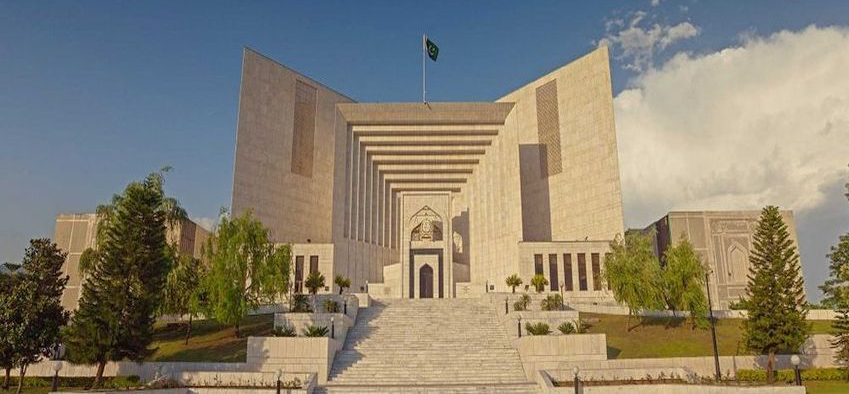Bail should not be granted in Serious Offenses like Murder unless Exceptional Circumstances exist --- Supreme Court of Pakistan
Islamabad 16-09-2024: The Supreme Court of Pakistan, by a majority decision of 2-1, granted post-arrest bail to Nacem Sajid and others in a high-profile murder case stemming from a land dispute in District Okara. The judgment, delivered by a three-member bench consisting of Mr. Justice Jamal Khan Mandokhail, Mr. Justice Syed Hasan Azhar Rizvi, and Ms. Justice Musarrat Hilali, converted the petitioners’ plea into an appeal and allowed their release on bail. The bench was, however, divided, with Mr. Justice Syed Hasan Azhar delivering a strongly worded dissent.
The petitioners were accused of murder under Sections 302, 148, and 149 of the Pakistan Penal Code (PPC) in relation to the death of the complainant’s father during an altercation over land ownership. An FIR was filed against them, alleging they attacked the complainant’s father and deliberately ran over him with a tractor, causing his death. The petitioners, however, contended that they were falsely implicated, claiming that the complainant and his associates had attacked them first and set their tractors on fire.
Mr. Justice Jamal Khan Mandokhail, writing for the majority, noted that the facts of the case were disputed, and both sides had presented differing accounts of the events leading to the incident. The Court emphasized that the role of each accused must be established at trial, and, at this stage, there was insufficient evidence to single out the petitioners as being primarily responsible for the alleged crime. Therefore, the case fell under Section 497(2) of the Criminal Procedure Code (CrPC), requiring further inquiry.
The majority concluded that on the basis of this tentative assessment, the petitioners were entitled to post-arrest bail. They were ordered to furnish surety bonds of Rs. 200,000 each to the satisfaction of the trial Court, which was directed to expedite the trial proceedings.
In his dissenting opinion, Mr. Justice Syed Hasan Azhar Rizvi firmly disagreed with the majority decision, arguing that the petitioners were explicitly named in the FIR and accused of playing an active role in the murder. Citing the prohibitory clause of Section 497(1) CrPC, which applies to offenses punishable by death or life imprisonment, Mr. Justice Syed Hasan Azhar Rizvi stated that bail should not be granted in serious offenses like murder unless exceptional circumstances existed.
He further criticized the cross-version filed by the petitioners, noting that it was registered over a month after the original FIR and was never mentioned in the petitioners’ earlier bail applications. Mr. Justice Syed Hasan Azhar Rizvi concluded that the petitioners failed to make a compelling case for bail and refused to grant leave.
The judgment highlighted important legal principles regarding the tentative assessment of evidence at the bail stage and the application of further inquiry under Section 497(2) CrPC. Mr. Justice Syed Hasan Azhar Rizvi dissent also referenced the rule of consistency in bail matters, which was not applicable in this case due to the petitioners’ active involvement in the alleged crime.
The dissenting opinion cited the cases of Bakhti Rahman Vs. State (2023 SCMR 1068) and Muhammad Atif Vs. State (2024 SCMR 1071), which emphasize that bail should not be granted in serious offenses unless there are substantial grounds for further inquiry into the accused’s guilt.
While the petitioners have been granted bail, the trial Court has been instructed to proceed expeditiously with the trial and reach a decision within the time frame previously set by the Lahore High Court. Both the majority decision and dissent indicate that the final determination of guilt or innocence will depend on the thorough examination of evidence during the trial.
The case continues to be closely watched due to its connection to a long-standing land dispute, which has added a layer of complexity to the legal proceedings.
This judgment showcases a significant divergence in judicial opinion regarding the application of bail laws in serious criminal cases. While the majority of the bench favored granting bail based on the need for further inquiry, the dissent underscored the seriousness of the charges and the limitations imposed by the prohibitory clause of the law. The trial Court’s handling of the case will be key to resolving the factual disputes at the heart of this contentious matter.
Powered by Froala Editor








